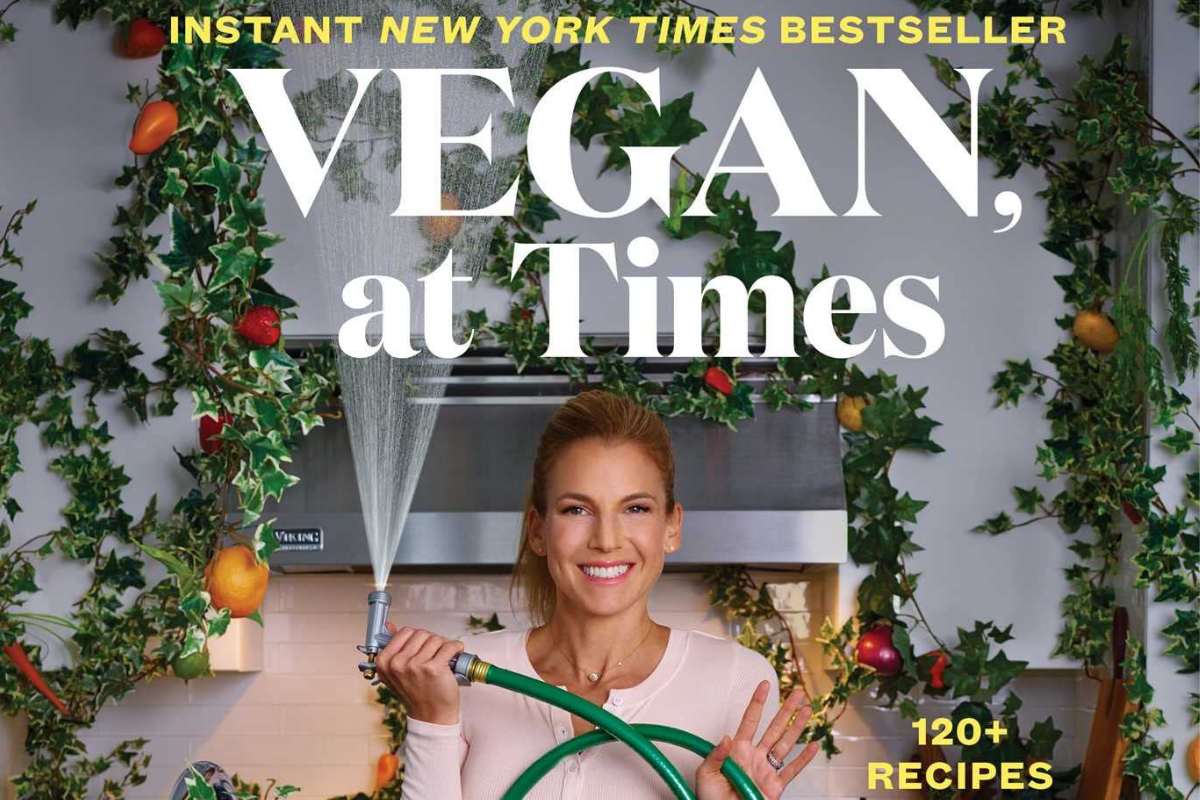by Priscilla Feral
There are approximately 10 million vegans in the U.S., yet cookbook authors like Jessica Seinfeld fear that the word “vegan” scares away omnivores, so her new book, Vegan, at Times: 120+ Recipes for Every Day or Every So Often holds no punches. Vegans are plenty insulted when they judge this book beyond the cover.
Jessica describes the vegans she’s come across as bossy and thinks there is nothing more “annoying and self-important” than food shaming.
That she takes a stab at making the consumption of sentient animals akin to “food shaming” rather than betrayal and dismemberment of innocent birds or animals is particularly weird and shallow.
We know that cultures and families have food traditions, but full stop. You don’t have to indulge the obscenity of seeing animals as your food. As Jane E. Brody wrote in her recent New York Times column, “Advice for a Healthier Way to Eat,” “Choosing plant-based proteins over animal sources of protein not only has health value for consumers but can help to foster a healthier planet. Experts have long known that animal products like beef, lamb, pork and veal have a disproportionately negative impact on the environment.”
That’s called science, not “food shaming.”
Learning how to follow a readable recipe and cook without meat, dairy and eggs is a skill – some call an art, yet it’s doable.
I hope Jessica’s recipes are reliable, stupendous even, but her caveat about bothersome vegans avoids commitment, and respect.
She writes that when veganism started to be a thing, she and her husband were turned off by its image, that it was too dogmatic and smug. She writes that when she started eating vegan, at times, she slept better and had more energy.
I’ve authored two vegan cookbooks, plus one vegan dog biscuit recipe book for Friends of Animals without the sanctimonious warning that it’s annoying to respect food and animals enough not to consume them.
Friends of Animals promoted the emergence of vegan restaurants for almost two decades with guides to key cities such as New York, Washington, D.C. and San Francisco and Los Angeles before it was simpler to find listings online. We did that while food critics overlooked and maligned vegan restaurants, to our utter frustration.
Now, with the opening of new, hot-spot vegan restaurants in New York City, critics and food writers are paying attention, and explaining their enthusiasm as “new ideas bubbling up faster in vegan restaurants than in any other kind of kitchen right now.”
Truth is, a lot of the new restaurants the New York Times writers have reviewed are serving food that’s been around in home kitchens and restaurants for years, but ignored by those obsessed with calling meat and fish the essential “protein” as though no meal or menu should be without it.
Perhaps the climate crisis is making critics and authors more observant. A recent report published by the United Nations Food and Agriculture Organization says that animal farming generates more greenhouse gas emissions (methane) measured in carbon dioxide—18 percent—than transport. It’s also a major source of land and water degradation.
So slaughtering 115 million pigs and 33 million cows in the U.S. each year contributes to our climate crisis.
Seinfeld writes that with all we’ve got going on in today’s world, food should stand above as a pleasure and delight. She wants people to eat, enjoy and live their life without judgement.
Too bad we aren’t going to be able to live at all if there’s no planet to live on.
We need to actively remove carbon dioxide from the atmosphere to offset the effects of carbon emissions, as the more carbon dioxide in the atmosphere, the warmer the planet becomes. Also, the U.S. is responsible for the biggest share of global carbon emissions, so it needs the biggest solutions, and that starts with all of us.
The decisions (perhaps in the form of some New Year’s resolutions!) you make now regarding our treatment of animals and the planet will affect future generations and individual lives.
Please consider adopting a vegan diet in 2022, but not just when you feel like it as Seinfeld suggests. And speak to others to possibly alter their culinary traditions and practices.
Because it’s not just about being a friend to them, it’s about being a friend to animals.

